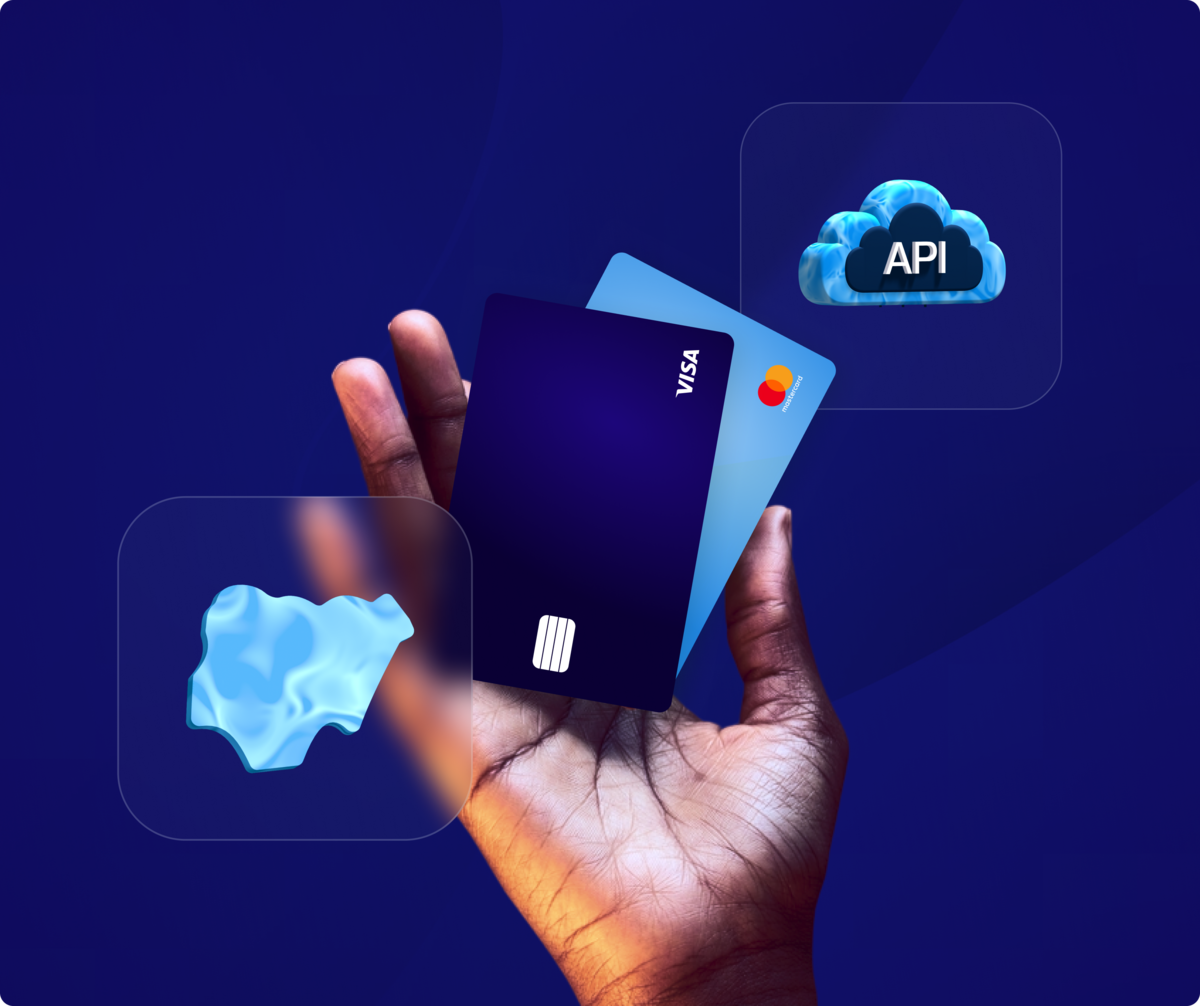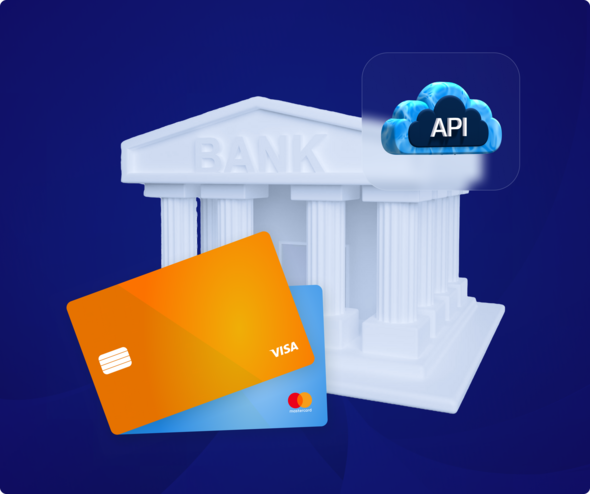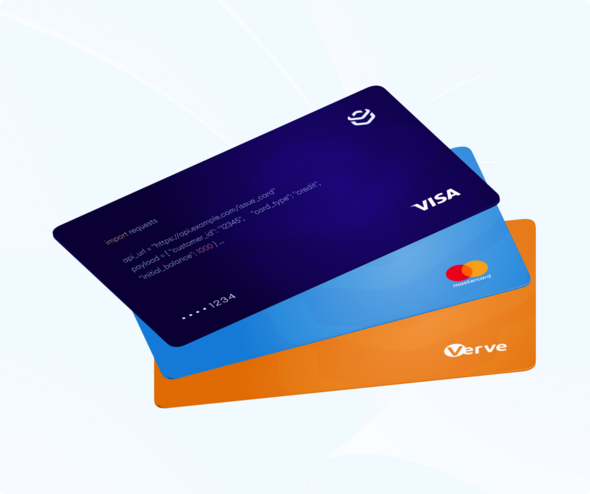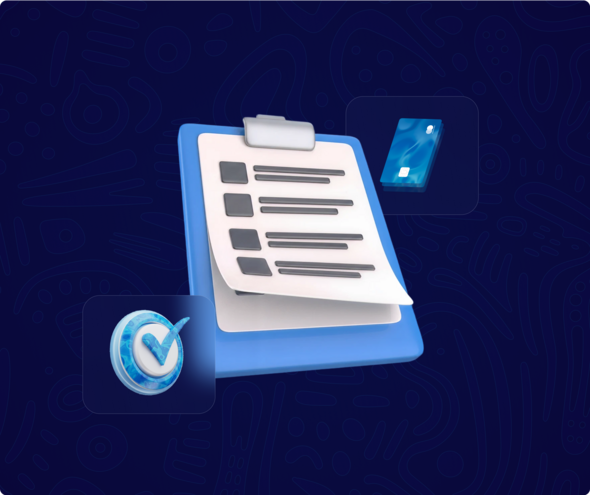There’s a popular saying that, “If you can’t take the heat, stay out of the kitchen” - and in FinTech? The kitchen gets hot, fast.
From managing complex payment operations to handling real-time reconciliations, running a fintech product in Nigeria is no walk in the park. Now imagine building new infrastructure on top of that, dealing with developer inconsistencies, long integration cycles, and high technical overhead.
This doesn’t have to be your case.
Whether you're building a fintech product or serving SMEs, Miden helps you issue cards and other payment infrastructure quickly, securely, and at scale.
How to get a Virtual Card API in Nigeria
A virtual card API in Nigeria can be issued by FinTech institutions, digital banks, or embedded financial companies. In most cases, these cards will most likely have either NGN or USD banking capacities (I.e, local and international operations).
The APIs can also be used to create corporate-branded cards, track expenses, facilitate global payments, and more.
Amongst others, Miden is one of the best companies to issue scalable and flexible APIs to businesses that allow them to issue virtual credit cards to their employees, vendors, or retail customers.
PCI-DSS Compliant, they offer card issuing capabilities across local standards and facilitate corporate brand management in different industries.
Here’s a step-by-step guide on how to obtain a virtual card API in Nigeria:
- Understand Your Use Case. In other words, why are you obtaining a virtual card API? These can range from a host of reasons, from expense management, global payments, embedded card functionalities, and more.
- Choose a Reputable Virtual Card Provider. In the next section, we’ll be exploring key things to consider before choosing a virtual card provider.
- Request API access and review the provider's documentation to understand integration requirements and setup guidelines. Look out for providers with BVN/NIN-based KYC tiers, Wallet balance hooks, and FX conversion built in.
- Integrate the API Into Your Product. The engineering team usually handles this part.
- Comply with CBN & Scheme Regulations. Ensure that your setup includes Tiered KYC, Audit logs and dispute processes, and more.
- Go Live and Start Issuing Cards! 🎉
Key Factors to Consider Before Choosing a Virtual Card API Provider in Nigeria
When choosing a virtual card API provider, here are ten (10) key things to consider before making a decision:
1. Licensing & Regulation:
Why it matters: Choosing a provider that operates within regulatory bounds protects your business from sudden shutdowns or policy reversals. It also ensures your cards are backed by credible institutions and compliant with Nigerian laws.
What to check: Confirm if the selected provider is licensed by the Central Bank of Nigeria (CBN) or partners with a licensed bank. Ask which financial institution their cards are issued under and whether they can legally issue both Naira and Dollar cards.
2. Security Standards:
Why it matters: Virtual cards are a common target for fraud. A provider with strong security reduces the risk of unauthorized use, protects customer data, and helps you build trust.
What to check: Ensure they meet PCI-DSS compliance standards. Ask if they offer 3D Secure (3DS) for authentication, real-time fraud detection, and anti-money laundering checks.
3. Developer Experience:
Why it matters: A comprehensive developer experience saves time and resources, reduces integration errors, and helps your team get to market faster.
What to check: Review their API documentation, sandbox environment, and SDKs. Look into their API uptime history, changelog transparency, and whether they offer dedicated developer support.
4. Funding and Spend Controls:
Why it matters: Flexible funding options and granular spend controls make it easier to customize cards for different teams or use cases, like advertising or procurement.
What to check: Find out if you can fund cards from a wallet or bank account. Check for features like the ability to freeze cards, block merchant categories (MCCs), set spend limits, or issue one-time-use cards.
5. International Acceptance & FX Stability:
Why it matters: Many Nigerian businesses rely on international services like AWS, Google, or Canva. You need cards that consistently work abroad and offer predictable FX rates.
What to check: Test how well their cards are accepted by global merchants. Ask about their FX rate policy, currency availability, and history of card declines due to country or merchant restrictions.
6. Reporting and Reconciliation:
Why it matters: Good reporting tools reduce the burden on your finance team and support better decision-making.
What to check: Look for platforms that offer downloadable statements, real-time transaction logs, and filtering options. Check if they integrate with accounting platforms or offer API access for reconciliation.
7. Onboarding and Customer Support:
Why it matters: Timely onboarding and responsive support can prevent delays in going live and help resolve issues quickly when they arise.
What to check: Ask about the typical onboarding timeline and the documentation available. Confirm the support channels they offer—email, phone, Slack—and whether you’ll have a dedicated account manager.
8. Scalability and Roadmap:
Why it matters: As your business grows, your card needs will evolve. Choosing a provider with a clear roadmap ensures you won’t have to migrate later.
What to check: Ask about their product roadmap and whether they plan to add features like physical cards, team management, or advanced analytics. Confirm that they can handle high transaction volumes and new use cases over time.
9. Transparent Pricing
Why it matters: Unclear or hidden fees can erode your margins and cause friction with your customers.
What to check: Request a breakdown of all potential charges—card creation fees, FX markup, monthly maintenance, dispute handling, etc. Also, ask if they offer tiered pricing or discounts at scale.
10. Local Market Understanding:
Why it matters: A provider that understands Nigeria’s unique challenges, like FX scarcity or merchant acceptance issues. As such, they can help you build better experiences for your users.
What to check: Evaluate their knowledge of local infrastructure and whether they support integrations with systems like NIBSS or Remita. Look into how they’ve handled past regulatory or currency disruptions in Nigeria.
How Miden Supports Nigerian Companies with Card APIs
Miden provides developer-first virtual card APIs tailored to Nigeria’s regulatory and infrastructure environment. With their corporate card-issuing solution, they facilitate the following:
- NGN and USD Card Issuance: Miden offers NGN (Naira) and USD virtual cards, catering to businesses that need both local and international transaction capabilities. This makes it easier for businesses to conduct cross-border transactions or serve clients with different currency preferences, without needing separate card solutions for each currency.
- KYC, Spending Rules, & Reporting KYC Automation: Miden simplifies the KYC (Know Your Customer) process with automated solutions, ensuring your business can onboard users faster while adhering to local regulatory requirements. Additionally, they provide granular control over spending rules, such as limits, merchant category restrictions (MCC), and spending thresholds. This allows businesses to easily manage expense policies and enforce real-time spending controls.
- PCI-DSS Compliant: Miden is PCI-DSS (Payment Card Industry Data Security Standard) compliant, meaning your customers' card data is securely stored, transmitted, and processed.
- NDPR Certified: Miden is NDPR (Nigeria Data Protection Regulation) certified, ensuring compliance with data privacy laws in Nigeria. This allows businesses to confidently handle sensitive customer information and reduces the risk of data privacy violations.
- Real-time Monitoring Capabilities: Miden provides real-time monitoring of card transactions, giving businesses instant visibility into user activities. This feature allows for proactive fraud detection and the ability to take immediate action on suspicious transactions, safeguarding both the business and its customers.
Final Thoughts on “Virtual Card API in Nigeria”
As Nigeria’s digital economy continues to evolve, virtual card APIs are becoming a core enabler of secure, programmable, and scalable payment solutions.
For digital companies, the ability to issue and control cards via API is not just an advantage — it's a necessity.
Looking to launch or upgrade your card offering? Join the leading innovators powering Nigeria's digital economy.
Found in:
Fintech





